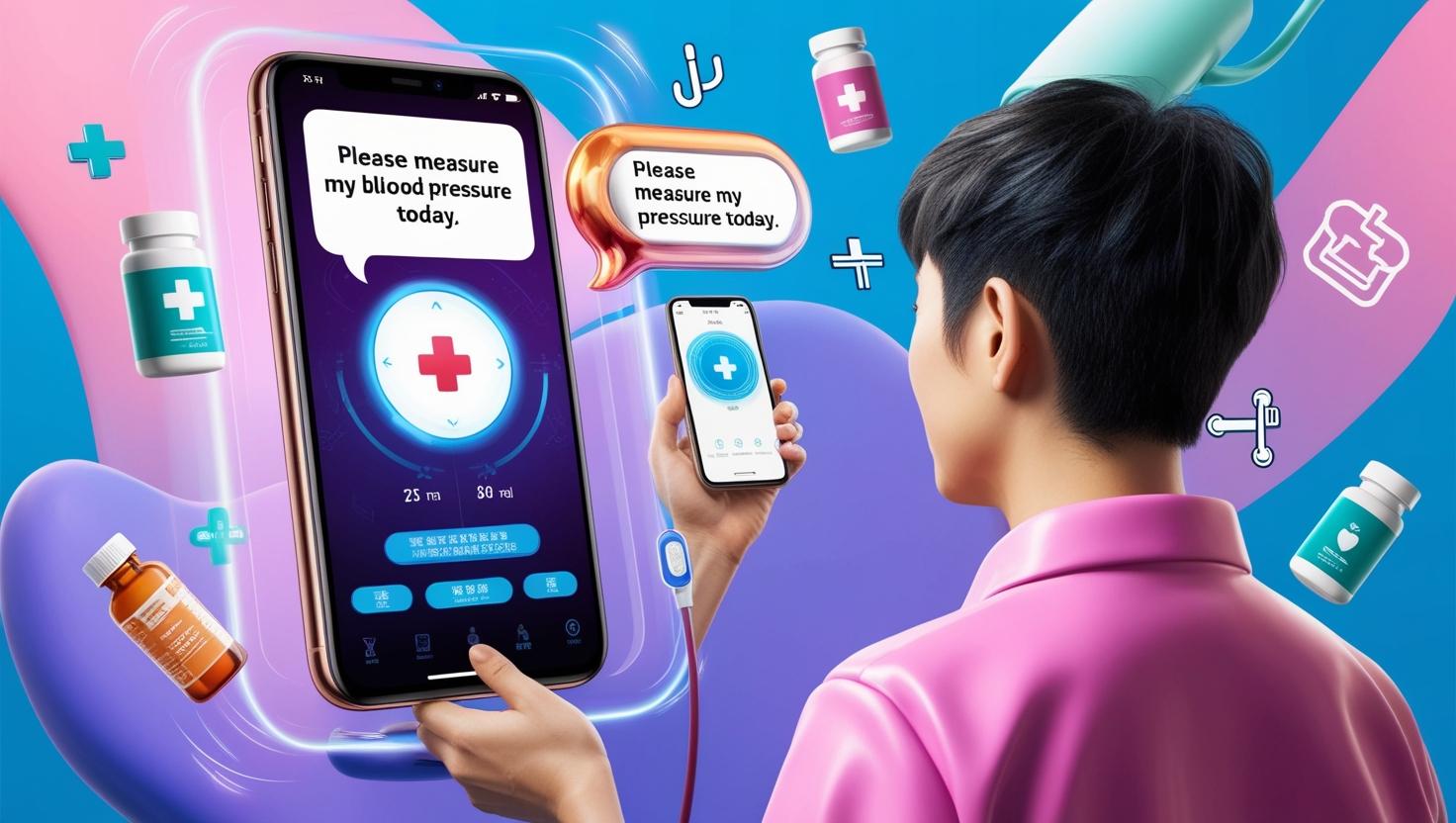“Did you check your blood pressure today?” “How many glasses of water did you drink?”
These aren’t questions from your family—they’re reminders from your AI health assistant.
Have you ever meant to remind your parents to take care of their health but couldn’t find the time?
Or perhaps you’re struggling to manage your own well-being amid a busy lifestyle?
Welcome to the digital healthcare era, where your health is managed by an AI health assistant app.
With cutting-edge voice recognition, these voice-activated health assistants track your health data and provide real-time advice as your personal wellness partner.
What Is an AI Health Management?
AI health assistants are healthcare tools that operate via voice commands.
Here are some of the things they can do:
- “Check my blood pressure today”
- “Recommend a post-meal workout routine”
- “Remind me to take my meds”
These assistants rely on key technologies such as:
| Technology | Function |
|---|---|
| Voice Recognition | Converts spoken requests into text |
| Natural Language Processing (NLP) | Understands the user’s intent |
| Health Data Analysis | Monitors and predicts health status |
Why Do You Need an AI Health Management App?
1. Aging Population Needs Health Alerts
South Korea will officially become a super-aged society by 2025.
For elderly individuals with limited mobility or digital access, voice-based health assistants offer a practical way to manage health through simple conversation.
2. Busy Professionals Always Put Off Health
Modern workers with 10+ hour days often neglect their well-being.
Voice-activated AI apps let them record health data with a simple voice command—even while commuting or washing dishes.
3. Chronic Illness Management Is Changing
Managing chronic diseases like hypertension, diabetes, and high cholesterol requires consistent tracking and data logging.
Imagine an AI doing all of that for you automatically.
Should I Start Using One?
Check these early warning signs that indicate you may benefit from an AI health app:
You rarely exercise
You don’t drink enough water
You often feel chronic fatigue
You skip regular health checkups
You’re worried about your parents’ health
How to Improve Your Lifestyle with AI
| Category | Recommended Action | Why |
|---|---|---|
| Use voice health assistant | Log routines, med reminders, fitness tips | Automated health tracking |
| Sync smartwatch | Measure sleep, heart rate, steps | Bio-data insights |
| Morning voice health check | Start with “How do I feel today?” | Includes mental health monitoring |
Daily AI Health Routine Example
| Time | Focus |
|---|---|
| Morning | Check condition via AI, hydration reminders |
| Afternoon | Prompt movement if step count is low |
| Evening | Suggest meditation, breathing, sleep prep |
📊 Key Statistics (as of 2023)
- 56.3% of people aged 60+ have hypertension
- Health app users rose 180% since 2020
- Over 42 hospitals adopted voice-based healthcare tech
- 71.2% of those aged 50+ are willing to try digital health services (Korea Health Industry Development Institute)
FAQ – Frequently Asked Questions
Q1. Is voice recognition AI accurate?
A. As of 2024, it achieves over 95% recognition accuracy.
Q2. Is it easy for seniors to use?
A. It’s even easier—just speak, no buttons required.
Q3. Is my health data secure?
A. Most apps encrypt your data according to medical data protection laws.
Q4. How much does it cost?
A. Most apps offer free basic features, with premium versions around $10–$20/month.
Q5. Can it help with specific diseases?
A. Yes—some apps are tailored for conditions like hypertension, diabetes, dementia, and depression.
In Summary…
Digital healthcare is no longer optional.
An AI health management app, especially one with voice recognition, can keep tabs on your well-being even when you can’t.
👂🏻 Start managing your health with your voice.
A small habit today can lead to major health benefits tomorrow.
Understand how AI checks compare with genetics:
Smart Personalized Nutrition Management Through Genetic Analysis
